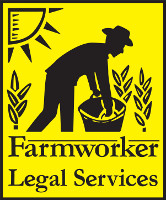Public benefits are government-funded programs that assist individuals and families in need. Public benefits may include access to healthcare, housing, food, childcare, utilities, tax credits or financial assistance. The Michigan Department of Health and Human Services (MDHHS) oversees most public benefits programs. Individuals can apply online (MI Bridges) or by phone at (833) SIAYUDA or (833) 742-9832.
Qualifications for Public Benefits
To qualify for public benefits, an individual must have a low income and be a U.S. citizen or have an eligible immigration status. Eligible immigrants include immigrants who have been permanent residents for five years or more, refugees, asylees, and some other limited categories. For food assistance, permanent resident children under age 18 or a person with disabilities (receiving Social Security Income or Medicaid based on disability) do not have a five-year wait.
Since August 1, 2024, lawfully residing children (up to 19 for CHIP and up to 21 for Medicaid) and pregnant people, including a 12-month postpartum period no longer must wait 5 years to qualify for Medicaid and CHIP. Many immigration statuses qualify as “lawfully residing.” Find more information at: bit.ly/MIRC_ICHIA.
Partially Qualified for Public Benefits
Individuals who meet income guidelines but do not meet the immigration requirements, may still qualify for Emergency Services Only (ESO) Medicaid or Maternity Outpatient Medical Services (MOMS). ESO Medicaid is coverage for serious emergencies and includes outpatient dialysis for people with End Stage Renal Disease. MOMS is for people who are pregnant or recently gave birth. MDHHS may also be able to provide transportation to and from medical appointments.
Public Benefit Eligibility for Children
U.S. Citizen or permanent resident children may be eligible for benefits, regardless of a parent's immigration status. If a child is eligible, childcare assistance may also be available.
Additionally, the Michigan Summer EBT program is available to help families buy food for their school-aged children (6 to 18 years old). Families will get $120 for each eligible child to buy groceries during the summer. Your child is eligible if they were or already are receiving SNAP (food benefits), TANF (cash assistance), or Medicaid anytime between July 1, 2024, and August 31, 2025. Your child is also eligible if they are approved for free or reduced-price meals with their school. Individuals can apply online on the MI Bridges Website.
Common Questions
What if I do not speak English?
- DHHS is required to provide you with a free interpreter if you do not speak English and your caseworker does not speak your language. If you receive notices in English that you do not understand, your caseworker is required to interpret them for you. If you do not understand the application, or a notice, ask for help.
Are there any changes with the end of the COVID-19 pandemic?
- During the COVID-19 public health emergency, people did not have to report changes or annually renew their eligibility. As of April 1, 2023, annual renewals and reporting requirements are again required. If you are a Medicaid recipient, make sure MDHHS has your current contact information. If you receive a Medicaid renewal notice, you must respond, or your Medicaid coverage will stop. If you were receiving Medicaid based on Social Security Income eligibility and received a termination letter, you may qualify for another category of Medicaid but will need to take steps to apply.
When do I need to report changes to DHHS?
- You must report changes to MDHHS within 10 days of becoming aware of them.
- Types of changes that must be reported include:
- Starting or stopping employment;
- Changing employers;
- Change in rate of pay;
- Change in work hours of more than five hours per week that is expected to continue for more than one month;
- Persons in the home;
- Change in address;
- Marital status;
- Address and shelter cost changes that result from the move;
- Vehicles;
- Assets;
- Child support expenses paid;
- Health or hospital coverage and premiums; and/or
- Dependent care expenses.
- Types of changes that must be reported include:
What if I am denied or cut off from benefits at MDHHS?
Ask for the decision in writing. You may appeal within 90 days. If you appeal within ten days, you may receive benefits until your hearing.
